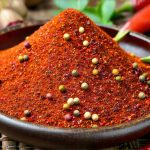Gut inflammation is something most people experience at least once in their lives, often without even realizing it. It’s not always dramatic; sometimes it manifests as bloating, gas, or occasional discomfort after eating. But chronic gut inflammation—the kind that lingers and doesn’t resolve easily—can be a serious health concern, linked to a wide range of conditions beyond digestive issues, impacting everything from mood and energy levels to immune function and even neurological health. Understanding how your diet plays a pivotal role in either fueling or calming this inflammation is the first step towards feeling better, more vibrant, and restoring overall well-being. This isn’t about restrictive dieting; it’s about making informed choices that support your gut microbiome and minimize irritation.
The digestive system is an incredibly complex ecosystem, housing trillions of bacteria, fungi, viruses, and other microorganisms – collectively known as the gut microbiota. When this delicate balance is disrupted—by factors like poor diet, stress, antibiotics, or chronic illness—inflammation can occur. This inflammation isn’t necessarily a bad thing initially; it’s your body’s natural response to protect itself. However, when it becomes persistent and uncontrolled, it can damage the gut lining, leading to increased intestinal permeability (often called “leaky gut”), impaired nutrient absorption, and systemic inflammation throughout the body. The goal is to create an environment where beneficial bacteria thrive and inflammatory triggers are minimized, promoting a healthy, resilient gut. If you’re struggling with persistent symptoms, listening to your gut can be invaluable, even when others dismiss them.
Dietary Strategies for Calming Gut Inflammation
The cornerstone of managing gut inflammation lies in adopting an anti-inflammatory diet. This isn’t about eliminating entire food groups (unless medically necessary); it’s about prioritizing whole, unprocessed foods that nourish your body and minimize irritation. A key principle is focusing on nutrient density – getting the most nutritional bang for your buck with every bite. Think vibrant fruits and vegetables, lean proteins, healthy fats, and fiber-rich carbohydrates. Reducing processed foods, sugar, and unhealthy fats are equally important steps.
A common approach involves identifying potential food sensitivities. While a formal elimination diet guided by a healthcare professional is the most accurate method, you can start by observing how your body reacts to different foods. Keep a food journal, noting what you eat and any corresponding symptoms. Common culprits include gluten, dairy, soy, corn, and nightshades (tomatoes, peppers, eggplant, potatoes), but sensitivities are highly individual. Remember that intolerance is different from allergy; intolerance generally causes digestive discomfort while allergies trigger an immune response. For children experiencing distress, belly pain can be a sign to investigate further.
Ultimately, the best diet for gut inflammation is one that’s tailored to your specific needs and tolerances. It’s about finding a sustainable lifestyle approach that supports long-term gut health rather than adhering to fleeting trends or restrictive rules. Incorporating fermented foods can also be highly beneficial, as they introduce probiotics – live microorganisms that contribute to a healthy gut microbiome. These include yogurt (if dairy is tolerated), kefir, sauerkraut, kimchi, and kombucha. Creating rituals around mealtimes can also create a sense of safety for your gut.
Foods to Embrace for Gut Health
- Fiber-Rich Foods: Fiber acts as food for your gut bacteria, promoting their growth and diversity. Excellent sources include:
- Fruits (berries, apples, bananas)
- Vegetables (broccoli, spinach, carrots)
- Legumes (beans, lentils, chickpeas)
- Whole grains (oats, quinoa, brown rice)
- Healthy Fats: Omega-3 fatty acids, found in fatty fish (salmon, mackerel, sardines), flaxseeds, chia seeds, and walnuts, have anti-inflammatory properties. Avocado and olive oil are also excellent choices. Avoid excessive amounts of saturated and trans fats.
- Lean Proteins: Choose protein sources that are easy to digest, such as:
- Fish
- Poultry (skinless)
- Tofu/Tempeh (for plant-based diets)
- Eggs
It’s important to note the way you prepare your food also matters. Opt for gentle cooking methods like steaming, baking, or sautéing rather than frying. Overcooked or charred foods can contribute to inflammation. Furthermore, chewing your food thoroughly is critical; it breaks down food particles, making them easier to digest and reducing stress on your digestive system. When traveling, handle surprises by planning ahead with gut-friendly snacks and meals.
Hydration & Gut Health
Water is essential for optimal digestion and gut function. Dehydration can lead to constipation, which exacerbates inflammation. Aim to drink at least eight glasses of water per day, or more if you are active or live in a hot climate. Herbal teas (ginger, chamomile, peppermint) can also be soothing and supportive for digestive health. Avoid sugary drinks and excessive caffeine, as they can disrupt gut balance.
Beyond water, consider incorporating bone broth into your diet. It’s rich in collagen and amino acids that help repair the gut lining and reduce inflammation. While not a cure-all, bone broth can be a valuable addition to an anti-inflammatory dietary plan. The quality of the bone broth is important—look for organic, grass-fed sources whenever possible. Remember, rest can be as powerful as any dietary change when your gut flares up.
Minimizing Gut Irritants
Certain foods are known to commonly trigger gut inflammation in many individuals. While individual sensitivities vary, reducing or eliminating these can significantly improve symptoms:
– Processed Foods: These often contain additives, preservatives, and unhealthy fats that contribute to inflammation.
– Sugary Foods & Drinks: Sugar feeds harmful bacteria in the gut, leading to dysbiosis (imbalance).
– Artificial Sweeteners: Some artificial sweeteners can disrupt gut microbiota.
– Excessive Alcohol: Alcohol irritates the gut lining and impairs immune function.
– Spicy Foods: While tolerable for some, spicy foods can exacerbate inflammation in others.
It’s not always necessary to eliminate these foods entirely, but reducing your intake is a good starting point. Pay attention to how your body responds and adjust accordingly. Learning to read food labels carefully and choosing whole, unprocessed alternatives are crucial steps towards calming gut inflammation. Focusing on what you can eat—the abundance of nourishing foods available—is often more empowering than fixating on restrictions.
It’s vital to remember that dietary changes are just one piece of the puzzle when it comes to managing gut inflammation. Stress management, adequate sleep, and regular exercise also play crucial roles in supporting overall health and a thriving gut microbiome. If you suspect you have significant gut inflammation or underlying digestive issues, consulting with a healthcare professional – such as a gastroenterologist or registered dietitian—is essential for personalized guidance and appropriate treatment. They can help identify specific food sensitivities, rule out other medical conditions, and develop a tailored plan to address your individual needs. Making space for healing is essential during flare ups and recovery. If you have a baby refusing food, it’s important to know what to do.


















